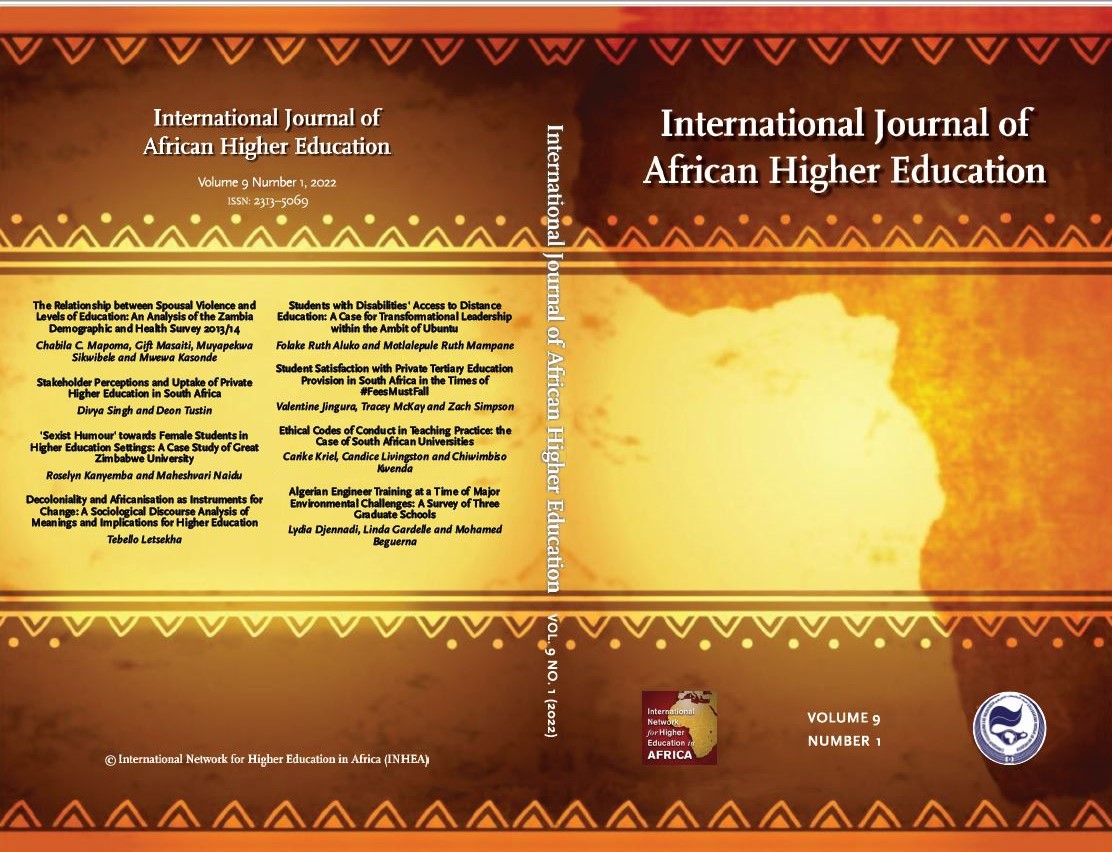Algerian Engineer Training at a Time of Major Environmental Challenges:
A Survey of Three Graduate Schools
DOI:
https://doi.org/10.6017/ijahe.v9i1.15243Abstract
Environmental problems are having a brutal impact on the daily lives of the North African population. These countries have a young population, with significant numbers in higher education. Given this context, are future graduates being made aware of environmental issues? Since future engineers are the creators of tomorrow’s technological and socio-technical changes, an analysis of their training is of particular interest. This article explores the ways in which choices are made in program creation and what influences changes in three engineering graduate schools in Algeria. Through a curriculum sociology approach, we examine how curricular offers are discussed and implemented when major environmental constraints weigh heavily on Algeria. We analyse higher education policies on engineer training, as well as the creation of programs, via an analysis of the programs themselves and interviews with 24 stakeholders. The article shows that in the absence of instructions imposed by political decision-makers, teachers enjoy a remarkable amount of freedom when creating curricula. However, tensions arise since there is no authority to arbitrate disagreements. The results open avenues for further reflection for researchers interested in macrosociological reconfiguration in higher education.
Key words: engineer training; environment; curriculum; Algeria; macrosociological reconfiguration
Downloads
Published
How to Cite
Issue
Section
License
Copyright (c) 2022 Linda Gardelle, Lydia Djennadi, Mohamed Beguerna

This work is licensed under a Creative Commons Attribution-NonCommercial-NoDerivatives 4.0 International License.

